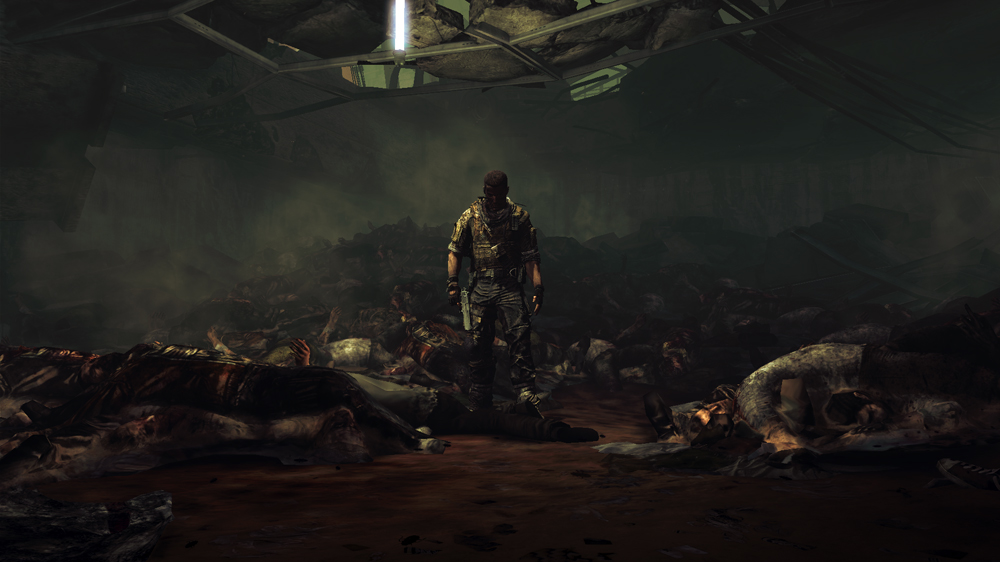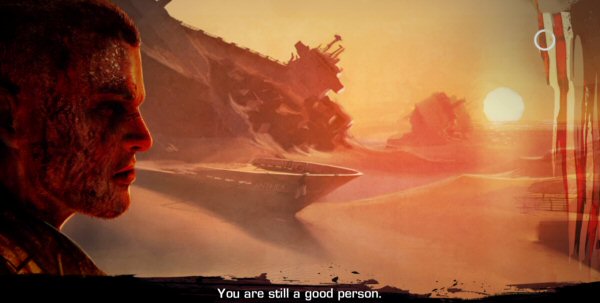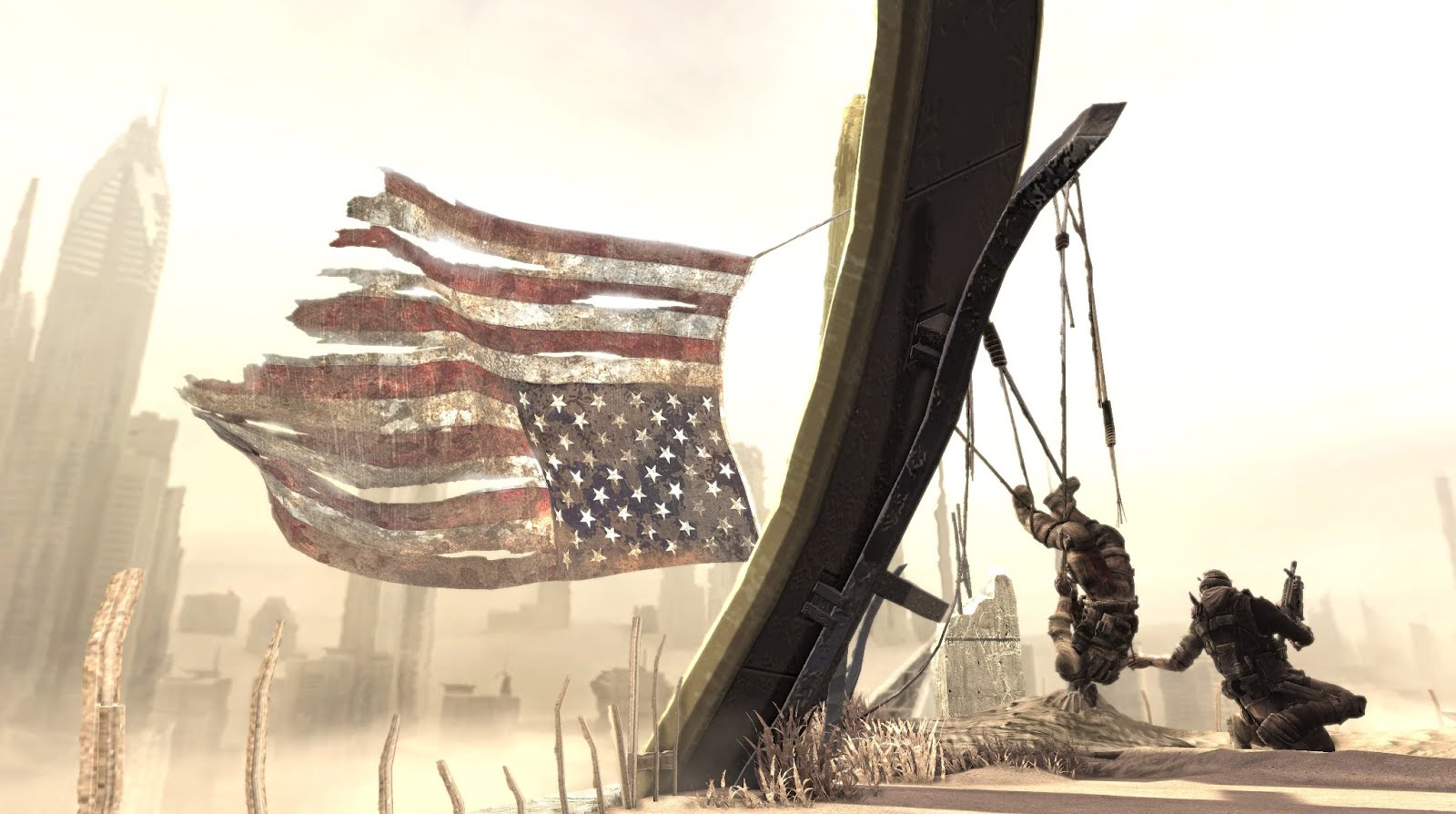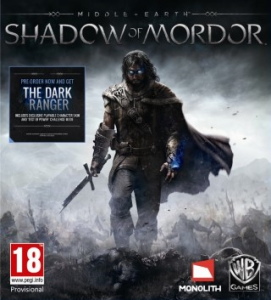My personal interest in the shooter genre has waned over the past few years. Fatigue has started to wear on my ability to continually pull the trigger and watch a virtual life end with a sense of realism. And yet, at E3 I found myself trying out a generically-so third-person cover shooter titled Spec Ops: The Line…for the sole purpose of getting a shirt if I completed the demo. The game did nothing for me, and it fell by the wayside – at least until after its release.
The reaction from the press was not what I expected. As soon as I heard what Spec Ops had done with its story and the effects it had on various members through both development and customer communities, I knew I had to experience the game.
After playing through the game, I was completely mesmerized. I lost sleep due to the thoughts I had about the things I had done in the game. I felt that they were my personal responsibility…that the choices I had made were mine and mine only. The game did not tell me that I needed to fire my weapon, it only showed me how to do it.
At the same time, however, there is nothing morally beneficial about playing the game. People are going to have to die, and it is going to be by your hands regardless of whether or not you want that to happen. Spec Ops: The Line will not forgive you for anything that you do. The first time through, I was trigger happy because my thought process was, “These people are trying to kill me, so…I should probably kill them.” I utilized the squad control mechanic, which meant handing off the responsibility of eliminating enemies to others. The burden of that command did not hit me upon that first experience with the game, and only afterwards did I realize what kind of person that I had become when faced with this situation. Soldiers have to make these decisions all the time in combat scenarios, making the way that Spec Ops “guides” you through the game that much more impactful and at the same time…infuriating.
The first encounter that the player and his squad have with a member of The Damned – an American soldier – is actually one of the most harrowing experiences in the entire game. The player has the option to kill the defenseless “enemy” in an effort to prevent him from reporting your whereabouts. I found it impossible to bring myself to murdering a soldier in uniform, regardless of whether or not they appeared to be on an opposing force. Then, the game throws you into an absolute hell, slaughtering American soldiers left and right for the next 8+ hours for reasons that continue to melt my thoughts about the title.
I feel that the point of the game was to communicate the horrors of war to the player. We have become so desensitized to the concept of death that we accept it as an everyday part of life. This concept has been capitalized upon in the form of the modern-day shooter, and no game has stopped to question the endless spree until Spec Ops: The Line finally did. The splash screens reminded me of this throughout the game – all of it was my fault. They told me that I was still a good person…I just didn’t believe them.
My hope is that developers learn from the way that Spec Ops conveyed the absolute hell that makes up the horrors of war. No other story in gaming has tried to establish the perversion of combat and the nightmares it contains in such an effective manner, and I am at a loss as to why I should continue to take joy in killing virtual human beings in lifelike scenarios.
I am still going to enjoy games that are not as grounded in reality that may allow me to kill another virtual player, but even then the action is questionable in nature. To stop and think about what you are doing in the context of military shooters, and especially why, is a difficult task to take on. Luckily for gaming, Spec Ops: The Line has taught us that there are ways to make the player and developer ask those questions.








